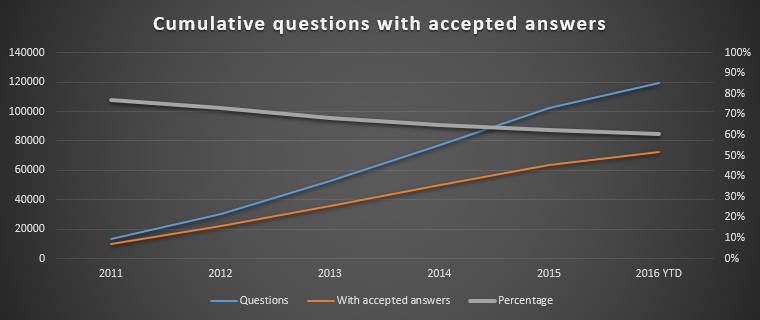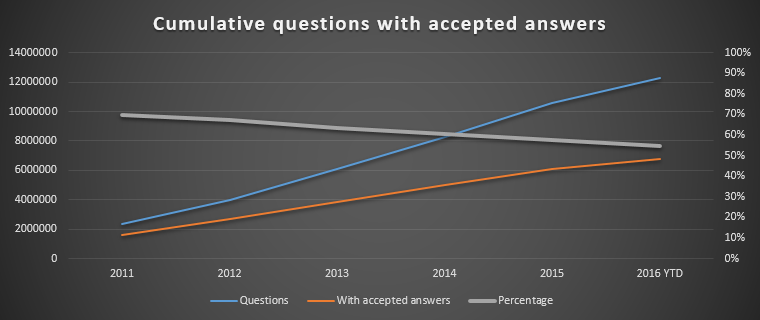Here is a timeline of how things changed on this site since 2011 (I used a year-specific extraction of a data query). More specifically, it shows the cumulative questions and accepted answers as well as this ratio (or percentage) as the site grows:

With accepted
Questions answers Percentage Growth
2011 13108 10095 77.01
2012 30159 22006 72.97 -5.26
2013 52625 35886 68.19 -6.54
2014 77097 50031 64.89 -4.84
2015 102148 63772 62.43 -3.79
2016 YTD 119297 72239 60.55 -3.01
It is more likely that older questions will have accepted answers as they've been around longer (and there's no limit on when one can accept an answer), hence taking a cumulative view on the site over time.
There is a decline in the accept percentage, but other sites show similar declines. Here is Stack Overflow:

With accepted
Questions answers Percentage Growth
2011 2319972 1617512 69.72
2012 3983113 2678124 67.24 -3.56
2013 6057454 3843306 63.45 -5.64
2014 8234853 4985830 60.55 -4.57
2015 10563270 6067815 57.44 -5.12
2016 YTD 12311318 6745451 54.79 -4.62
I think it's reasonable to assume that one may lose answer acceptance over time, with the decline of year-over-year acceptance slowing (perhaps plateauing) as the site grows. This may be as a result of site dilution (through increased scope) and an increased user base (which results in more questions but not necessarily more answers being accepted), amongst other things.
Related queries on Data.SE:


